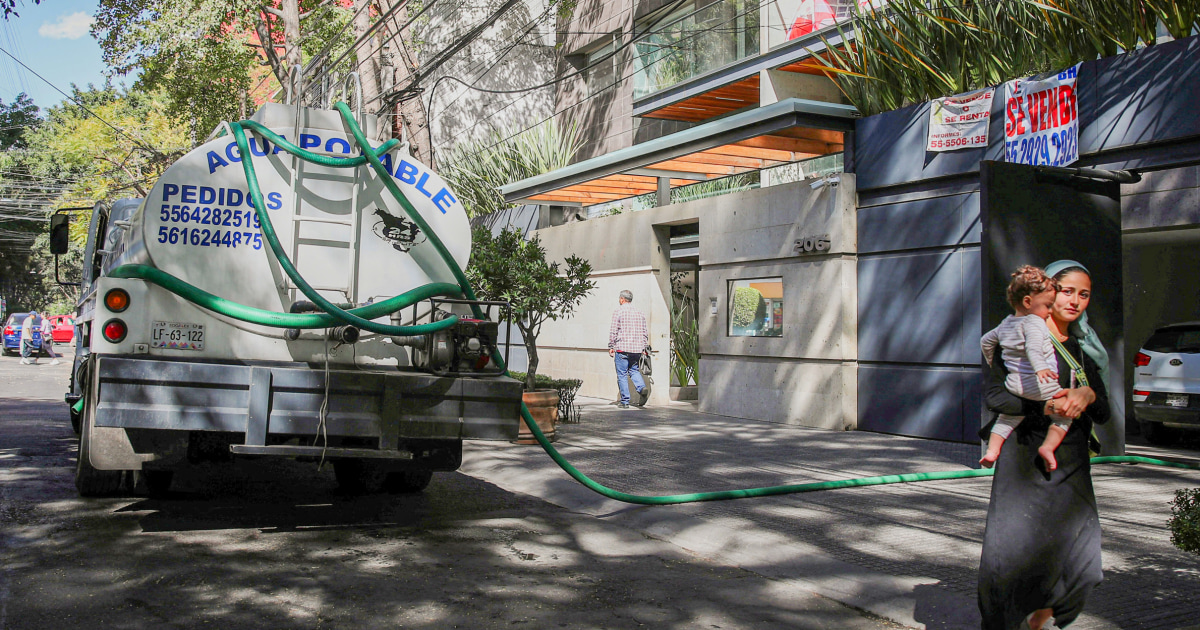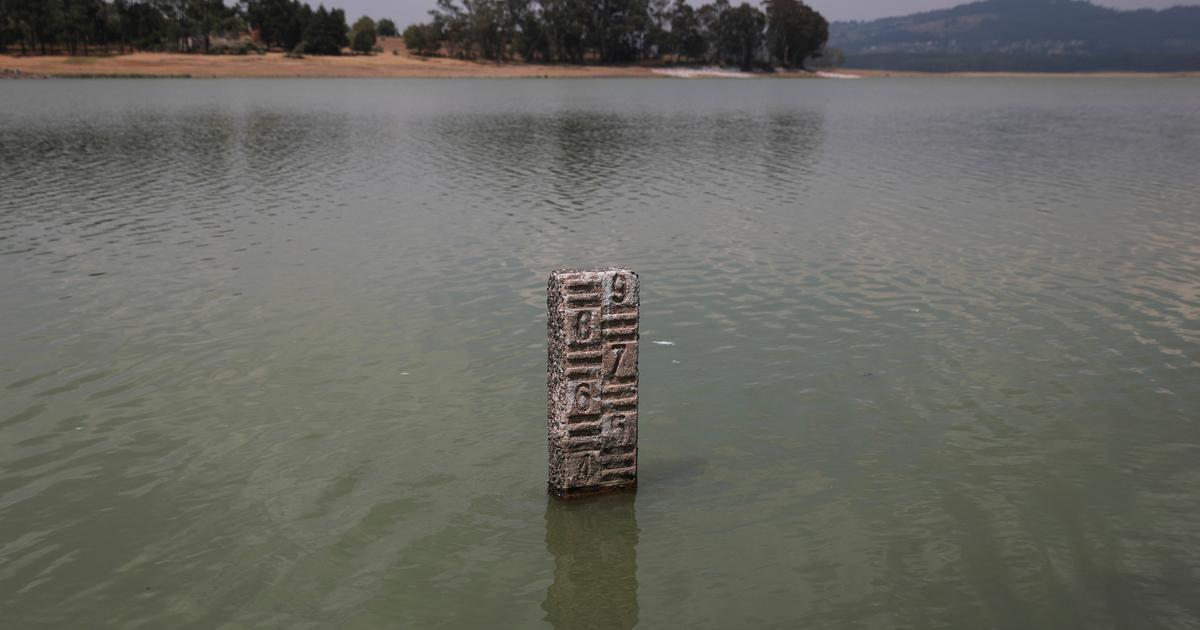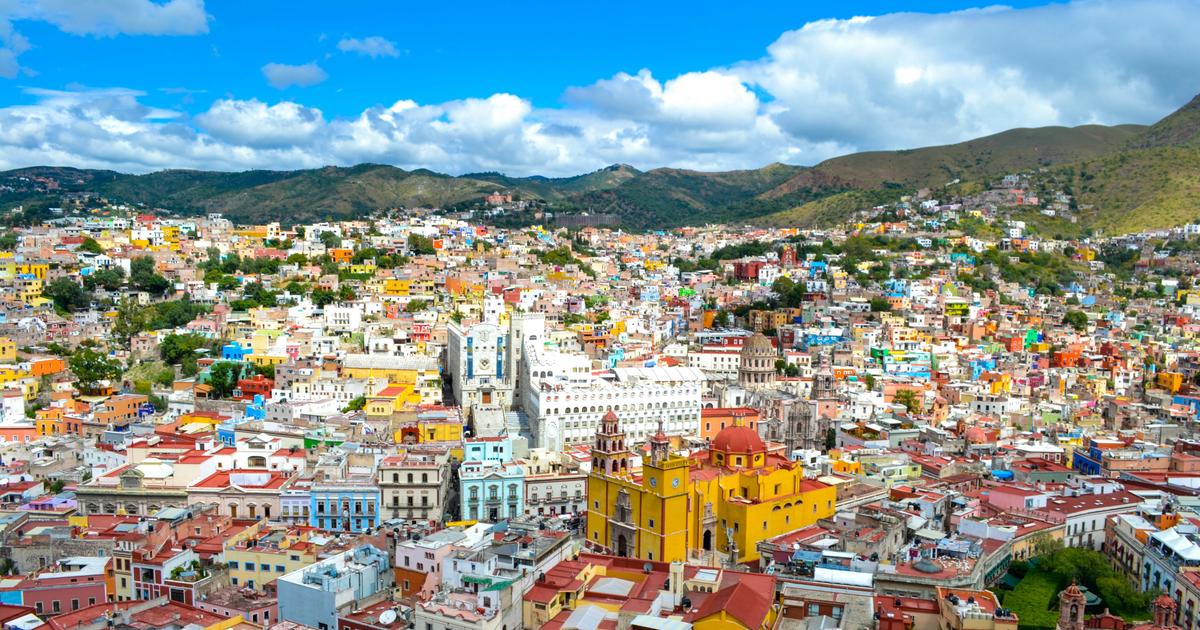EL PAÍS offers the América Futura section openly for its daily and global informative contribution on sustainable development.
If you want to support our journalism, subscribe
here
.
In the towns through which the Metlapanapa River crosses, in the northwest of the State of Puebla, in central Mexico, a group of women is leading the resistance against the dispossession and extraction of resources at the hands of more than 30 companies.
All of them were born and grew up surrounded by water that flowed overflowing into dozens of springs, many of them considered sacred.
Throughout their lives, they have seen how most of them dried up and now they protect the little that reaches the wells, from which their families drink.
Like their lands – which have dried up and lost their wealth – their bodies and faces are also marked by the battle for water, a term that is being heard more and more in a country experiencing a deep water crisis. and environmental.
Their struggle is reminiscent of the stories they heard as girls about the Adelitas, those women who during the Mexican Revolution of 1910 took the front of battalions and camps alongside the men, under the banner of defending the land.
More than a century later, they also went down in history by managing to stop in 2020 the operations of the Bonafont company, of the transnational Danone, which for almost 30 years extracted 1.64 million liters of water daily from the Metlapanapa River.
The women went ahead.
Protected by the Popocatéptl and Iztaccíhuatl volcanoes, today they continue to defend their territories and communities from the textile, steel, automotive, agricultural and livestock industries, settled in the region for decades.
A cartel announces the meeting in defense of water and territory.
Quetzalli Nicte Ha
With a bucket in hand and a sweater for when night falls, Cenaida Xochihuila watches over the last surviving ameyal (spring) in the town of San Lucas Nextetelco, about a 20-minute walk from her home.
She is 68 years old, has 13 children and five grandchildren, and is part of the Pueblos Unidos de la Cholulteca y de los Volcanes front, which stopped the multinational two years ago.
"There were many women from all the towns who went to the front and we stayed there," she recalls.
The takeover of the Bonafont plant lasted a whole year until on August 22, 2021, the international day of water, the company forcibly retook the facilities with the support of the National Guard.
As a resistance front, women, generally older, were in charge of feeding and supporting dozens of participants in the sit-in.
“For three months and 15 days, I was there, day and night.
I would only return to feed my husband, and I would go there to sleep, there we would eat, we would have dinner, we would watch, ”says Cenaida.
She until she one day she got sick.
His hands have black and gray stains left on him after handling toxic materials in 2019, a year before the bottling plant closed.
Then, he led another protest against the discharge of waste into the river by some thirty companies that make up the industrial park located next to the Mexico-Puebla federal highway.
Hands of Cenaida Xochihuila.Quetzalli Nicte Ha
Paloma – fighting name – has spent her 75 years of life drinking water from a well more than 200 meters deep that she keeps in her house.
She lives in the town of Cuanalá, about 20 kilometers from the city of Puebla.
There, under the ground, there is still clean water thanks to the struggle of the women.
Three years ago, when she stopped coming, she decided to go out and fight.
She responded to the call of her companions after the companies wanted to make the river her waste dump.
"We saw that they wanted to pipe to discharge the contaminated water from the industrial corridor," she says, recalling the birth of the Guardianas del Río Metlapanapa front.
"There were many elderly women, most of us were older, and we decided that we were going to go to the front because the police arrest men, they invent crimes and criminalize them."
If 100 years ago, in the battle of the revolution, men were killed or imprisoned by the regime, now they are detained and criminalized by local authorities.
“Until now there are only investigation files against the comrades.
There are many”, warns Paloma.
The detainees are the parents, husbands, brothers, friends and neighbors of the guardians.
Before, they were the most visible face of the struggle, while the women remained in the resistance, feeding and supporting seedlings, battalions and homes.
Doña Cenaida's husband, for example, has been facing legal proceedings against him since 2014 for trying to prevent a landowner from cutting down young trees to make stakes.
According to her complaint, he was falsely accused of threats and theft of a crop valued at 40,000 pesos (about 800 dollars).
He was released from prison after paying bail, but since then, he has been constantly watched and every week he has to go to sign in at the police headquarters.
For this reason, she decided to join the fight with more than 60 years.
On the way to the spring, Doña Cenaida greets everyone by name and asks how the family is.
She keeps a steady pace and doesn't stop when it comes to jumping streams and dodging brush.
“Look, all this is still very nice.
That's why they covet it,” she says, pointing to how little green is left by the river.
"Recently, the municipal government wanted to charge the entrance to the spring, and we, as owners of the land, do not let them," she explains.
"The good thing is that we already had the river fenced since the industrialists wanted to throw their crap here and we didn't let them either."
water memories
Guardians like her learned from their ancestors to read the water and manage it to meet the needs of the home.
They say that after eight o'clock at night, she sleeps and should not be disturbed.
You also have to ask her permission before taking her out of it and do it patiently, while still thanking her.
Anselma Margarito, Joaquina Paulino, Isable Valencia and Margarita Margarito, Otomies belonging to the community that has taken over the old INPI building.
Quetzalli Nicte Ha
That is why it hurts them so much that from the river where they bathed as children, surrounded by fish, turtles and crabs, all that remains is the memory and many stories to tell their grandchildren.
Paloma still keeps in her memory a swamp and a forest that surrounded the river of fruit trees.
But now, walking through the remaining crops, the earth gives off a metallic smell and the trees die in pools of sewage.
Near a sinkhole of more than 120 meters that opened a year ago in the center of the municipality of Zacatepec, after the introduction of ducts under the crops, Paloma is approached by two neighbors.
They ask him why the group does not allow discharges into the river.
Patiently, she explains to them that these waters seep into the ground, contaminating their crops and damaging their health.
"You have to talk with the children, take off the blindfold and go ahead, we're leaving," she tells them before saying goodbye to her.
Maya, 47, remembers when the toads sang to warn that a downpour was coming.
“When it didn't rain they were kept on the ground, but they are gone.
I don't know where they went, if they died, and it makes me sad because I want my grandchildren to know them and see that they too have a mission in this life”, she laments.
Therefore, she scratches holes in the ground to plant trees and run clean water on the ground.
However, she says, now the rain advisory is increasingly strong and strange winds caused by companies blasting chemicals into the clouds to prevent rainfall from damaging their operations, she warns.
In the town it is customary to make a bull roar as a sign that an accident has occurred.
At the age of 10, Cenaida listened to that sound a lot, while the Ilsa company (now Ternium) was set up with the promise of progress in the 1970s. It was the first to settle in the region.
“They said there was going to be a lot of work.
Lie.
It was a slaughter that there was.
Since people did not know how to operate machines, there were many accidents.
Some were disabled, others died, ”she relates.
The steel mill located in the town of San Miguel Xoxtla is still a threat to the region.
The industry uses five wells to make rods with which they contaminate the water in their community, according to Doña Cenaida's complaint.
“When the air blows or it rains, all the waste comes here, and all of us eat with lead, but more so those who live there, their land already looks black,” she says.
The rage of seeing the degradation of her community and the story of the Adelitas inspired Colibrí, the battle name that another 68-year-old water defender has chosen.
“They were always carrying their molcajete and metate (traditional utensils for grinding and kneading food) to keep up the revolutionaries' fight.
Where the camps were set up, well, there were the Adelitas with their comal and their pots, ”she narrates.
"Now they are seedlings, but you also see the women with the brazier, the stove and the firewood to make the tortillas," she compares.
Many defenders have decided to reserve their identity to dignify the struggle of women, whose names and stories have been made invisible.
They wear a bandana that covers half their face and in recent years they have learned new resistance strategies.
Especially since they met Tepozán, a 30-year-old activist who moved to the community two years ago to support the women with the sit-in at the water bottler.
Before she was with the Zapatistas, who taught her the importance of surviving and the double struggle that women live on the road.
“I promise to live and I do not forget that agreement.
Survive as a woman”, shares the young woman.
Now they inspire other women, as was seen the last weekend of August during the first Assembly for Water and Life in Mexico, where more than 50 defenders from different organizations from all over the country arrived.
A few steps from the Metlapanapa River, in the main square of Zacatepec, dozens of communities affected by the increasingly visible water crisis attended the meeting in search of solutions.
There were women from Monterrey (Nuevo León), in the north of the country, who stopped a road project that intended to cross the hill, and who are now dealing with a religious tourist complex and to protect the last water hole that survives on top of their neighborhood in the midst of the water crisis.
Also a group from the community of Cherán K'eri, in the south of the state of Michoacán, which led a revolt that in 2011 expelled the organized crime that besieged its forest and murdered and disappeared men.
And Otomi women from the community displaced 40 years ago from Santiago Mezquititlán, in Querétaro, and who since October 12, 2021, have taken over the facilities of the National Institute of Indigenous Peoples (INPI), in Mexico City.
For all of them, the Guardians of the Metlapanapa River are an example to follow.
“They and the Zapatistas are the ones who have inspired us the most and taught us how to organize ourselves equally.
No one is more or less, we all go together,” says 20-year-old Otomí Anselma Margarito.
“That is why we have moved forward and our fight continues.”




/cloudfront-eu-central-1.images.arcpublishing.com/prisa/D2UWF6W24JCGDKLV7FNUXTOWBY.jpg)

/cloudfront-eu-central-1.images.arcpublishing.com/prisa/N666OIF66VEFREUTK66WBJDGCM.jpg)


